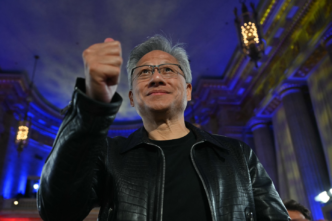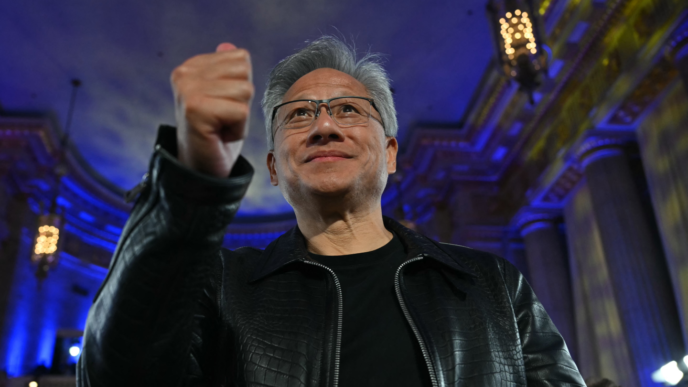Nvidia is the crown jewel of the artificial intelligence (AI) boom, with a market capitalization that briefly topped $3 trillion and a reputation as the world’s most indispensable chipmaker. At the center of it all is Jensen Huang, the company’s charismatic co-founder and CEO, who has become a global tech icon.
But behind the headlines of Nvidia’s stock surge and its dominance in the AI supply chain lies a far tougher reality. Huang’s company is increasingly squeezed by the geopolitical rivalry between the United States and China, two of its biggest markets and most important regulators. The position is enviable in some ways—Nvidia sits at the very heart of the AI revolution—but it’s also precarious.
Washington’s Tight Grip
The U.S. government sees Nvidia’s advanced GPUs not just as business products but as strategic assets critical to national security. With AI expected to shape military capabilities, intelligence gathering, and economic competitiveness, Washington has moved aggressively to restrict the export of Nvidia’s top-tier chips to China.
Nvidia’s A100 and H100 processors, essential for training large AI models, were among the first targeted by U.S. export controls. While the company has developed “compliant” chips for the Chinese market, those workarounds have been met with tighter rules and uncertainty.
The U.S. Department of Commerce has made clear: advanced AI hardware must not give Beijing an edge. For Huang, that means a market that once accounted for up to 25% of Nvidia’s data center revenue is suddenly a geopolitical flashpoint.
Beijing’s Response
China, meanwhile, has not stood still. Facing restrictions, it is doubling down on its own semiconductor development, pouring billions into state-backed firms and accelerating efforts to achieve chip self-sufficiency.
Beijing’s message is equally clear: if the U.S. cuts supply, China will build its own. For Nvidia, that creates the risk of losing long-term market share to homegrown rivals, especially if Chinese firms succeed in developing GPUs capable of matching or surpassing Nvidia’s performance.
Huang has carefully avoided antagonizing Beijing, framing Nvidia as a neutral innovator rather than a geopolitical pawn. But his position is delicate: he must reassure Washington that Nvidia is aligned with U.S. strategic goals while preserving relationships in China, the world’s second-largest economy.
The Growth Dilemma
For now, Nvidia’s sales in the U.S. and other unrestricted markets are more than compensating for lost Chinese business. Tech giants like Microsoft, Google, Meta, and Amazon are in an arms race to buy Nvidia chips, fueling record-breaking demand.
But the bigger question looms: what happens when demand normalizes? If China remains off-limits and ramps up its domestic competitors, Nvidia could find itself more dependent on a smaller pool of hyperscale buyers in the West—customers who are already pushing the company on pricing and looking for alternatives.
Huang’s Leadership Under Pressure
Huang, who built Nvidia from a graphics card startup into an AI powerhouse, is known for his visionary bets—most notably, pivoting Nvidia into parallel computing and AI years before rivals caught on. That foresight made Nvidia indispensable.
Yet even for him, this moment is different. Nvidia’s future is now shaped as much by geopolitics as by innovation. The U.S. wants to weaponize its dominance in AI chips; China wants to reduce reliance on American firms. Nvidia, caught in the middle, has little control over either.
Lessons for Tech Leadership
The predicament underscores a broader truth for global tech CEOs: in today’s world, leadership requires navigating politics as much as technology and markets. For Huang, that means:
- Innovating fast enough to stay ahead of emerging competitors.
- Managing supply chains that are increasingly subject to national security reviews.
- Balancing relationships with Washington, Beijing, and global customers.
- Preparing for a future where AI hardware may be as tightly regulated as weapons.
Conclusion
Jensen Huang may be the face of the AI boom, but his job is far from enviable. Nvidia’s dominance makes it indispensable, yet that very success has pulled the company into the center of the world’s most consequential geopolitical rivalry.
In the years ahead, Huang’s ability to balance innovation with diplomacy could prove just as critical as the chips Nvidia builds. For all the talk of AI shaping the future, it’s geopolitics that may ultimately decide Nvidia’s destiny.













